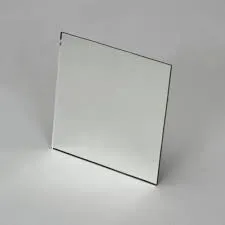

Understanding Thick Float Glass Properties, Applications, and Advantages
Thick float glass, a type of flat glass, is produced through the float process, a method first developed in the 1950s. This innovative production technique has revolutionized the glass manufacturing industry by offering uniform thickness, enhanced optical clarity, and superior surface finishes. It has paved the way for a variety of applications across multiple sectors, primarily due to its unique properties and functionalities.
Properties of Thick Float Glass
One of the standout features of thick float glass is its remarkable durability. With thicknesses that can vary significantly, often reaching 6 mm to over 25 mm, this type of glass is exceptionally resistant to impact and thermal stress. The manufacturing process involves floating molten glass on a bed of molten tin, which results in a smooth, flat surface and consistent thickness. This inherent stability makes it an excellent choice for applications where mechanical strength is paramount.
Moreover, thick float glass has outstanding optical properties. It offers high transparency and a high degree of light transmission, making it suitable for applications that require clear visibility. Its clarity enhances the aesthetic appeal of architectural designs, allowing natural light to illuminate indoor spaces effectively. Additionally, thick float glass can be treated with various coatings to improve its thermal insulation and reduce glare, making it an even more versatile material.
Applications of Thick Float Glass
The versatility of thick float glass has led to its widespread use in various applications across different industries
. In the architectural and construction sector, it is extensively utilized in the manufacturing of windows, facades, and skylights. Its ability to withstand environmental stresses allows buildings to maintain their integrity while providing excellent energy efficiency through insulated glazing options.In the automotive industry, thick float glass finds its place in windshields and large window panes. Its robustness is crucial for vehicle safety, providing reliable protection against impacts and harsh weather conditions. The aesthetic qualities of thick float glass also contribute to the overall design and luxury appeal of vehicles.

Another important application is in the realm of interior design and furniture. Thick float glass is used in the fabrication of tabletops, partitions, and decorative elements. Its ability to be cut and polished to various shapes allows designers to create unique and stylish furnishings that enhance the ambiance of residential and commercial spaces alike.
Advantages of Thick Float Glass
One of the primary advantages of thick float glass is its thermal resistance. Its ability to withstand significant temperature fluctuations makes it suitable for applications in environments with varying thermal conditions. This characteristic is especially beneficial in regions with extreme climates.
Furthermore, thick float glass is relatively low-maintenance. Unlike other materials that may require frequent upkeep, it is easy to clean and maintain its clarity over time. This aspect is particularly appealing for large installations, such as commercial buildings, where maintenance costs can be significant.
In terms of sustainability, thick float glass is an eco-friendly choice. It is made from natural raw materials such as silica, soda ash, and limestone, and it is fully recyclable. As the demand for sustainable building materials increases, thick float glass stands out as a responsible option for environmentally conscious consumers and designers.
Conclusion
Thick float glass represents a significant advancement in glass technology, combining durability, clarity, and versatility. Its properties make it suitable for a wide range of applications, from architecture and automotive to interior design. As industries continue to seek innovative and sustainable materials, thick float glass remains a reliable choice that meets modern demands while enhancing aesthetic and functional qualities. This multifaceted material is expected to continue thriving in various sectors, symbolizing the fusion of practicality and elegance in design.